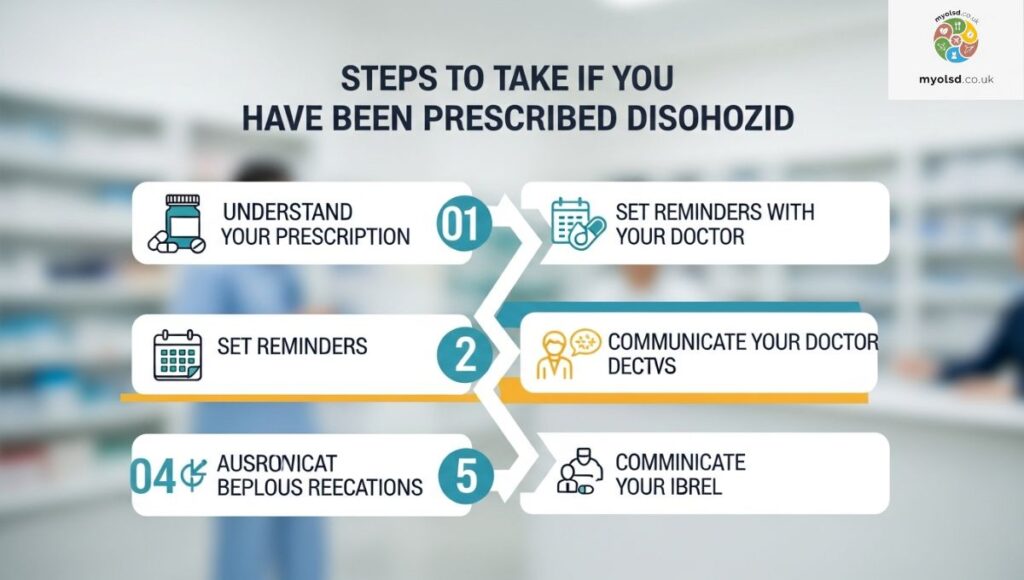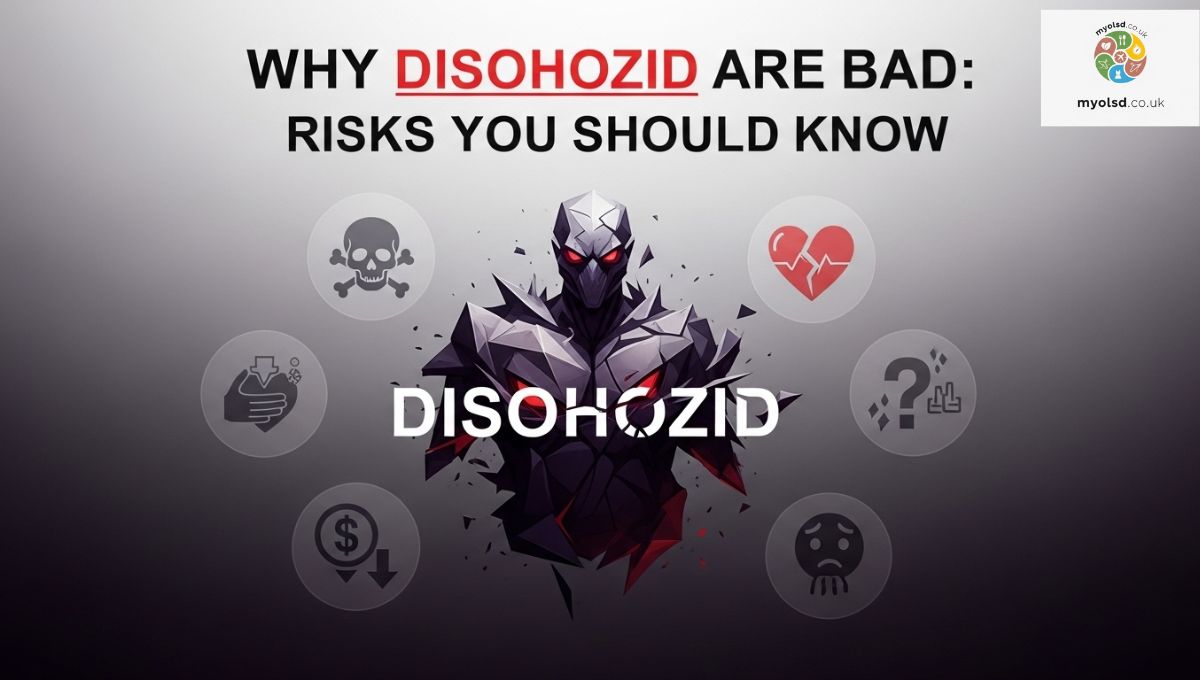Ever wondered if the medications you’re taking could actually be doing more harm than good? I’ve been there reading labels, scrolling forums, and feeling a little worried about side effects. That’s exactly why so many people start asking questions about why disohozid are bad. It’s frustrating not knowing if what’s supposed to help you could actually be putting your health at risk.
In this post, we’re going to break it all down in simple terms. You’ll get a clear look at the risks, side effects, and long-term concerns linked to disohozid, plus insights on how to stay safe. By the end, you’ll understand the full picture and feel confident making better health decisions.
Negative Effects of Disohozid on the Body

Disohozid is often mentioned in online forums or unofficial health discussions, but it’s not widely documented in recognized medical databases. That alone can be a red flag. When a medication or supplement isn’t clearly defined, it may carry unknown ingredients, inconsistent dosing, or side effects that haven’t been properly studied. This is one of the key reasons people search for why disohozid are bad in the first place.
Short-term effects can include dizziness, fatigue, headaches, nausea, and digestive discomfort. Because the actual formulation of a drug like Disohozid can vary depending on its source, users may also experience allergic reactions or unpredictable interactions with other medications. Even if some people tolerate it initially, the lack of standardized safety testing increases the risk for everyone.
Health Risks Associated with Long-Term Use of Disohozid
The biggest concern is chronic exposure. Taking any poorly regulated drug over time can harm vital organs such as the liver and kidneys. These organs act as filters for toxins and medications, so prolonged use of Disohozid may cause strain or even damage. Over months or years, users could develop elevated liver enzymes, impaired kidney function, or hormonal imbalances. This explains another dimension of why disohozid are bad for long-term health.
Mental health effects are also possible. Because some substances alter neurotransmitters, people may experience mood swings, anxiety, depression, or sleep disturbances after prolonged use. These symptoms may seem unrelated at first but often resolve when the drug is discontinued under medical supervision. Long-term use can also lead to dependency or withdrawal-like reactions, which complicates recovery even further.
Alternatives to Disohozid for Common Medical Conditions
If Disohozid is being used for a legitimate medical reason, it’s important to ask your healthcare provider about safer options. Many conditions can be managed with better-researched medications or natural remedies. For example, herbal supplements like chamomile, turmeric, or valerian root may help with mild anxiety, inflammation, or sleep disturbances but unlike Disohozid, these are more widely studied and regulated.
Lifestyle changes are another excellent alternative. Regular exercise, balanced nutrition, and mindfulness practices can significantly reduce the need for risky medications. When you understand why disohozid are bad, you’re more motivated to explore holistic options or evidence-based treatments that improve your health without exposing you to unknown side effects.
Read more Article: Why Your Feet Turn Purple
Steps to Take if You Have Been Prescribed Disohozid

Sometimes, people are prescribed Disohozid or a similarly named drug by mistake or because of outdated protocols. If that’s your situation, don’t panic but don’t ignore it either. The first step is to talk openly with your healthcare provider about your concerns. Ask them to explain what the medication is for, what research supports its use, and whether there are safer alternatives.
You can also request blood work or other tests to monitor your liver, kidney, and overall health while taking it. Keeping detailed notes of any new symptoms can help your doctor spot adverse effects early. This proactive approach minimizes harm and gives you a clearer picture of why disohozid are bad for some people but may be tolerated by others.
How to Properly Manage and Reduce the Use of Disohozid
If you’re already taking Disohozid and want to stop, never quit abruptly without medical guidance. Some medications require tapering to avoid withdrawal symptoms. A gradual reduction supervised by a healthcare provider is usually the safest path. This step-by-step approach allows your body to adjust while minimizing discomfort.
Support your system with healthy habits during the transition. Adequate hydration, nutrient-dense foods, and gentle exercise can help your liver and kidneys detoxify naturally. Mindfulness practices like yoga or meditation can also reduce stress, making it easier to stick with your tapering plan. By following these guidelines, you’ll understand firsthand why disohozid are bad when misused and how to protect yourself from harm.
Understanding Side Effects and Warning Signs
Recognizing early warning signs can save your life. High or persistent fever, severe difficulty breathing, chest pain, uncontrolled bleeding, or sudden confusion are all red flags that something is seriously wrong. Even if you’re unsure whether these symptoms are related to Disohozid, seek medical attention immediately.
Tracking your reactions in a journal is a practical way to communicate with your doctor. Write down when you take the drug, your dosage, and any changes you notice. This record can reveal patterns, making it easier to decide whether to continue, reduce, or stop the medication. It also reinforces why disohozid are bad when adverse effects are documented clearly.
The Role of Public Health and Regulation

One of the biggest problems with drugs like Disohozid is the lack of oversight. When a substance isn’t officially recognized by bodies like the World Health Organization or the U.S. Food and Drug Administration, there’s no guarantee of quality control. That means the pill you take today may not be identical to the one you took last month even if the label looks the same.
Public health agencies rely on surveillance systems to detect new threats, but unregulated drugs often slip through the cracks until a major incident occurs. This lag time is another reason why disohozid are bad from a population-level perspective. Without clear data, doctors can’t predict interactions, dosages, or long-term consequences.
Safer Practices to Protect Your Health
Fortunately, there are concrete steps you can take to reduce your risk. First, verify the legitimacy of any medication before using it. Check government or reputable health websites for official listings and safety alerts. If a drug isn’t listed anywhere credible, think twice about taking it.
Second, maintain good hygiene and preventive care. Vaccinations, regular checkups, and a healthy lifestyle all make you less dependent on unregulated treatments. These habits also strengthen your immune system, reducing the chances that you’ll need risky drugs in the first place. Understanding why disohozid are bad motivates you to build healthier habits now rather than later.
Coping With Anxiety About Disohozid
Feeling anxious about a mysterious drug is completely normal. In fact, your caution is a sign that you’re taking your health seriously. The internet is full of sensational claims, but not all of them are true. Learning how to separate fact from rumor can calm your fears and guide you toward safe choices.
If you’re still worried, discuss your concerns with a trusted healthcare professional rather than relying solely on online information. They can clarify misconceptions, explain risks, and recommend alternatives tailored to your situation. This reassurance can help you move from fear to informed action, which is the ultimate goal of understanding why disohozid are bad.
Making Informed Decisions About Your Health

At the end of the day, the decision to take or avoid a drug like Disohozid is personal but it should always be informed. Educating yourself about potential risks, monitoring your body, and seeking professional guidance are the three pillars of safe medication use.
Knowledge empowers you to question, compare, and choose. When you understand why disohozid are bad, you’re not just reacting to fear you’re acting on evidence. That shift can mean the difference between long-term harm and long-term health.
Conclusion
The question why disohozid are bad opens up a much larger conversation about unregulated medications, hidden side effects, and the importance of evidence-based care. While Disohozid itself isn’t a recognized or well-studied drug, its risks mirror those of many under-regulated substances that circulate online or in informal markets.
By staying alert, asking the right questions, and prioritizing safer alternatives, you can protect your health and make confident decisions. Remember: it’s always better to be cautious, verify information, and consult a professional than to gamble with an unknown substance. Your health and inner peace are truly worth it.
FAQS
What makes disohozid harmful to health?
It harms the liver, nerves, and mental health, especially with long-term or unsupervised use.
Can disohozid cause permanent damage?
Yes, prolonged use can lead to permanent liver and nerve damage.
Is disohozid safe for children or elderly patients?
No, it carries higher risks and should only be used under strict medical supervision.
Are there safer alternatives to disohozid?
Yes, doctors often prescribe newer or less toxic drugs depending on the infection.
Why should disohozid only be used under medical guidance?
Because misuse increases the risk of severe side effects, drug interactions, and long-term harm.

